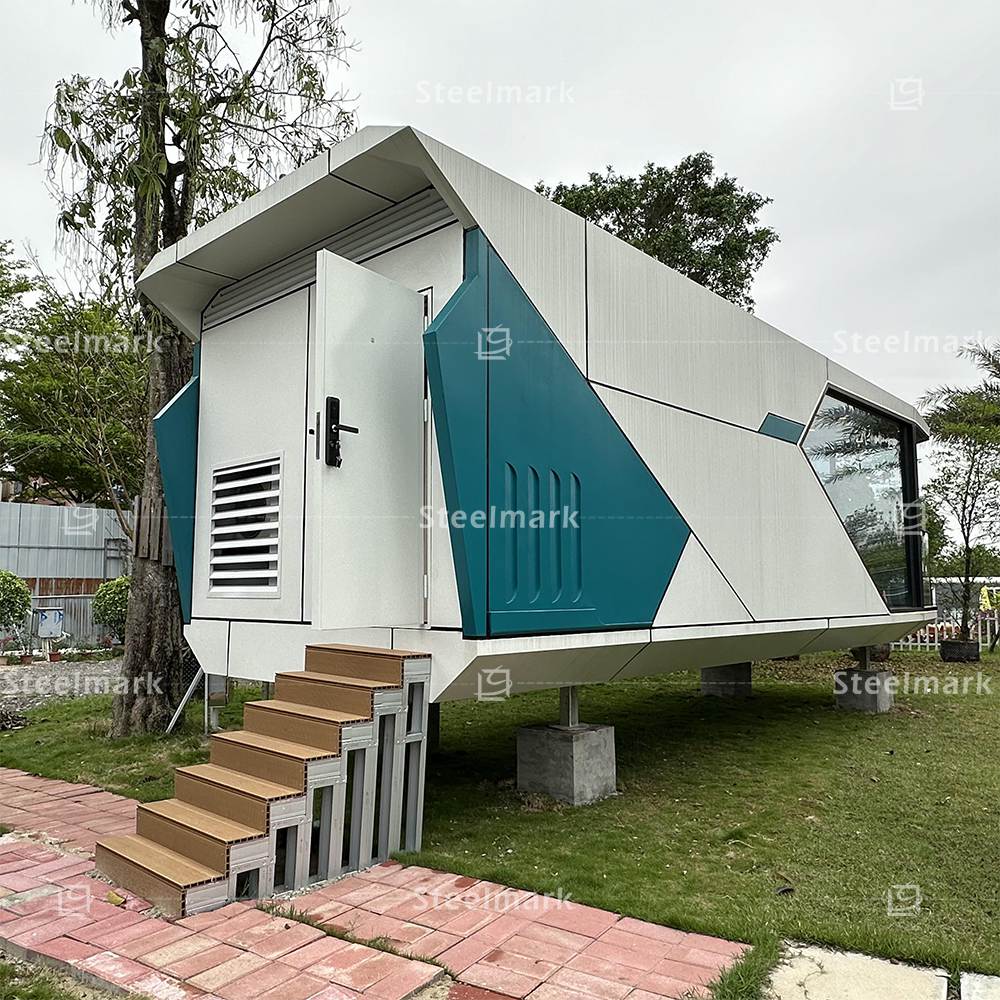Easy Homebuilding With Modern Modular Home Designs

Advantages of Modular Home Designs
Modular home designs use countless advantages that make them an attractive choice for numerous house owners. Among the primary advantages is cost-effectiveness. Due to the fact that modular homes are built in a manufacturing facility setup, home builders can streamline the procedure, minimizing labor and product prices, which often translates to reduce costs for buyers.
Furthermore, modular homes are recognized for their speed of building. pod homes. The regulated atmosphere of a manufacturing facility enables reliable setting up, enabling house owners to relocate into their brand-new house much sooner than traditional structure methods would enable
Power performance is one more substantial benefit. Several modular homes are created with sustainable materials and energy-efficient systems, leading to lower utility costs and a minimized environmental impact.
Additionally, modular styles supply a high degree of modification. Homeowners can frequently select from numerous layouts, materials, and coatings, ensuring that their home fulfills individual preferences and way of life needs.
Lastly, modular homes are built to satisfy extensive structure codes and requirements, making certain longevity and security. Generally, the mix of affordability, speed, high quality, efficiency, and customization makes modular home designs an attractive option for a variety of customers.
The Modular Building And Construction Process
The modular building process entails a systematic strategy that substantially varies from traditional structure approaches. Each module is constructed with the same products and standards as a site-built home, including insulation, electric circuitry, and plumbing systems.
As the modules are built, the website prep work can happen at the same time, consisting of structure job and energy setups. This identical procedure greatly decreases the overall timeline for completion. Once the modules are ready, they are carried to the structure website, where they are craned right into position and securely signed up with together.
The last phases involve finishing touches, such as exterior house siding, roof covering, and interior detailing. This structured method not only reduces building waste but also boosts energy effectiveness with well-coordinated building techniques. On the whole, the modular building procedure offers a much faster, cost-effective, and eco friendlier choice to standard home building.
Modification Options Available
Discovering customization options in modular home designs allows house owners to customize their living rooms to their special choices and lifestyles. Among one of the most enticing aspects of modular homes is the browse around this site versatility they supply in layout and format. Home owners can pick from a selection of floor strategies, varying from open-concept spaces to a lot more standard formats, guaranteeing that the home fits their specific demands.
Along with architectural modifications, modification reaches aesthetic elements. Homeowners can pick from a considerable combination of products, coatings, and colors, including cabinetry, countertops, flooring, and home siding. This level of customization makes it possible for residents to develop a cohesive design that reflects their individual style.
Additionally, modular homes can incorporate energy-efficient features and clever technology options. Homeowners can go with solar panels, energy-efficient home windows, and advanced heating and cooling down systems, contributing to both comfort and utility cost savings.
Last but not least, numerous manufacturers use the chance to include unique elements, such as built-in shelving, custom wardrobes, or outdoor space. This comprehensive range of personalization alternatives makes sure that modular home styles can be as functional and distinct as the households who inhabit them.
Sustainability in Modular Residences
Sustainability is a vital consideration in contemporary home structure, and modular homes are increasingly developed with environment-friendly methods in mind. These structures reduce waste via effective manufacturing procedures, as parts are fabricated in a regulated environment (pod homes). This not just minimizes the amount of material discarded throughout Home Page construction but also lowers the carbon footprint related to standard building approaches
Modular homes frequently include sustainable products, such as redeemed wood, recycled steel, and low-VOC paints, which contribute to healthier indoor air quality. Several layouts incorporate energy-efficient systems, consisting of solar panels, advanced insulation, and high-performance home windows, which lower energy intake and energy expenses over time.
The modular building technique additionally enables better planning of energy usage and source monitoring throughout the building lifecycle. By using prefabricated components, builders can substantially lower transportation exhausts, as materials are supplied in mass to the site.
In addition, the flexibility of modular homes permits future upgrades, making certain that home owners can change their space to include much more sustainable technology as it becomes offered. Generally, sustainability in modular homes represents a forward-thinking approach to more information environmentally accountable living.
Cost-Effectiveness of Modular Structure
Modular homes not only prioritize sustainability but additionally provide substantial cost-effectiveness compared to traditional building approaches - pod homes. Among the key monetary advantages is the decrease in labor costs. Because a substantial part of the construction process happens in a regulated manufacturing facility environment, labor performance is increased, resulting in lower general costs
Furthermore, the usage of standard products and designs lessens waste, resulting in cost savings that can be handed down to consumers. The time cost savings related to modular building and construction also add to its price; projects can be completed in a fraction of the moment it takes for standard builds, enabling homeowners to relocate in sooner and begin benefiting from their financial investment.
In addition, modular homes commonly integrate energy-efficient attributes, which can result in minimized energy costs gradually, further improving their cost-effectiveness. Funding options for modular homes are also coming to be more favorable, with several lenders recognizing their worth and stability.
Verdict
Finally, contemporary modular home styles provide a transformative technique to homebuilding, identified by personalization, efficiency, and sustainability. The streamlined building and construction process enhances high quality and adherence to building codes while supplying house owners the chance to customize their home. Moreover, the consolidation of energy-efficient systems considerably decreases utility prices and environmental effect. Inevitably, modular homes represent a forward-thinking remedy that addresses modern real estate needs and advertises a much more sustainable future in household construction.
